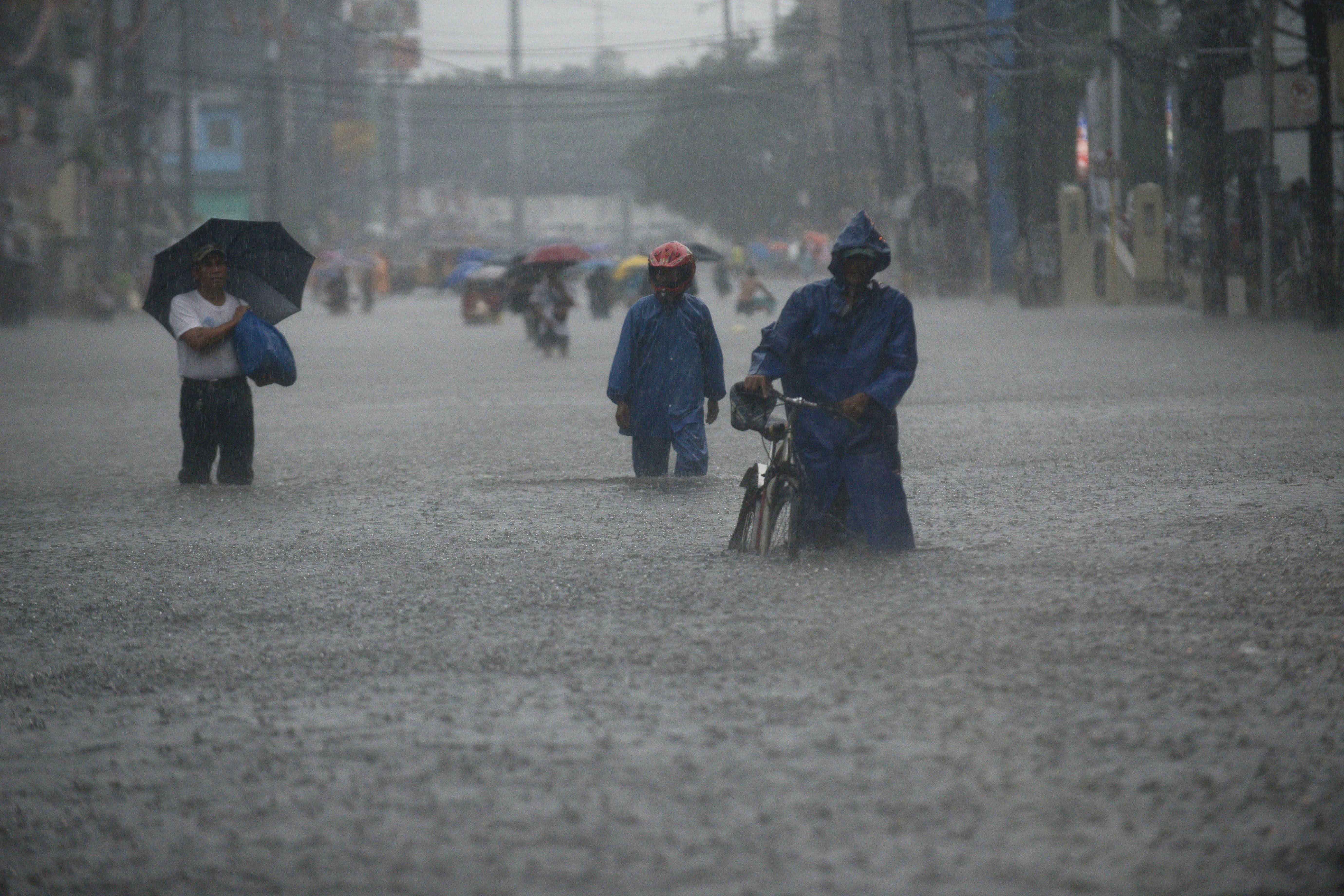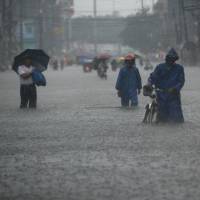It is all but certain that human activity has caused a steady increase in global temperatures over the past 60 years, leading to warmer oceans and an acceleration in rising sea levels, according to the most recent climate change report by an international U.N. panel of scientists.
In a draft summary of the fifth climate assessment since its creation in 1988, the U.N. Intergovernmental Panel on Climate Change warns that continued greenhouse gas emissions "would cause further warming" and induce changes that could "occur in all regions of the globe . . . and include changes in land and ocean, in the water cycle, in the cryosphere, in sea level . . . and in ocean acidification."
Six years ago, in its last report, the IPCC concluded there was a 90 percent certainty that human activity was responsible for most of Earth's warming.
The 2013 draft summary increased that certainty to 95 percent.
"Human influence on climate caused more than half of the observed increase in global surface temperature from 1951-2010," the report said.
"There is high confidence that this has warmed the ocean, melted snow and ice, raised global mean sea level, and changed some climate extremes, in the second half of the 20th century," it said.
The IPCC — composed of hundreds of scientists, including from federal agencies — tracks the impact of global warming on specific regions and species.
In 2007, it won the Nobel Peace Prize along with former U.S. Vice President Al Gore. The body plans to release its massive final report in four stages over the next year, starting with a meeting next month in Stockholm.
The draft summary, completed in June, was leaked and first reported last weekend by Reuters news agency and later by The New York Times. The Washington Post obtained a copy Tuesday.
In remarks to the BBC, a spokesman said the report is far from complete and that conclusions should not be drawn from the report's findings.
"It is guaranteed it will change," said Jonathan Lynn, a spokesman for the IPCC.
He said the document was provided to U.N. member governments and has drawn approximately 1,800 comments, many of which will be considered as the assessment is debated and edited.
But the leaked draft mirrors previous assessments in many ways, and asserts that its changed predictions are the result of significant improvements in the way scientists study the rise in temperature and sea levels.
Some say the draft's predictions are too conservative.
Such critics argue the prediction that ocean levels could rise as much as 1.3 meters by the end of the century conflicts with those of other scientists who envision even more dire consequences.
For instance, a report on Maryland sea-level rise released in June by the state's Climate Change Commission estimated that the rise would range from slightly less than 1 to 2 feet (0.3 to 0.6 meter) by 2050, and from 2 to 6 feet (0.6 meter to 1.8 meters) by 2100, depending on several factors, including glacial ice melt.
Up to 1.8 meters of sea level rise can be devastating when effects from storm surge are factored in, said Donald Boesch, president of the University of Maryland Center for Environmental Science.
In addition to the alarming projections, the document reported several disturbing facts about global warming.
Carbon dioxide in the atmosphere has increased by more than 20 percent since 1958 and 40 percent since 1750, "virtually all due to burning of fossil fuels and deforestation, and a small contribution from cement production."
In many ways, climate change will continue for centuries even if emissions of greenhouse gases are stopped.
"This represents a substantial multicentury commitment created by past, present and future emissions of CO₂," the report cautioned.
Brenda Ekwurzel, senior climate scientist for the Union of Concerned Scientists, called the draft a sober snapshot of how climate science has evolved since the last report in 2007.
"Scientists have a clearer picture of how our climate is changing," she said. The bad news: "The problem is getting worse because countries keep dumping more heat-trapping emissions into the atmosphere.
Ekwurzel said this draft has a more realistic estimate for global sea level rise than the last report.
As a consequence, scientists are now estimating a far more rapid sea level rise "for planners in places like the (United States') East Coast," Ekwurzel pointed out."



















With your current subscription plan you can comment on stories. However, before writing your first comment, please create a display name in the Profile section of your subscriber account page.